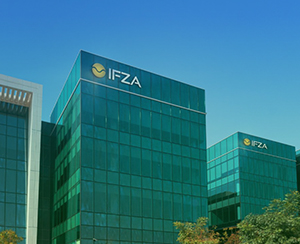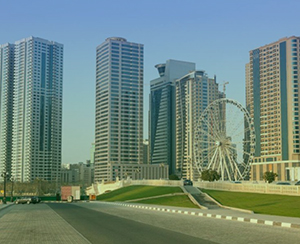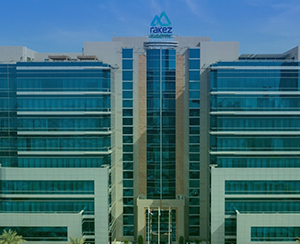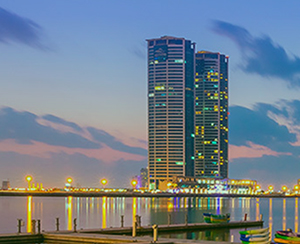Dubai is one of the Middle East’s most profitable and welcoming business destinations. Thanks to its strategic location, Dubai is a favourable location for trade and investments. One of the many reasons that make Dubai the global and regional centre of commerce is the presence of free zones. There is ample scope for enterprises to flourish and expand largely due to the numerous free zones in Dubai.
What is a Free Zone?
The first thing to be aware of is that free zones are not exclusive to Dubai. There are free zones all around the United Arab Emirates. A free zone, also known as a free trade zone or a free zone authority, is an economic region governed by unique laws that do not apply to companies operating outside the zone. Free zone businesses in Dubai are subject to unique tax and foreign ownership regulations to trade goods and services.
One important aspect of free zones that attracts business owners is the 100% foreign ownership policy. This implies that overseas investors don’t have to collaborate with local sponsors to fully own their businesses.
Located all over the city, Dubai’s free zones serve a wide range of businesses, from start-ups to major multinationals and re-exporters. They provide easy access to Dubai’s top-notch supply chain and logistics infrastructure, making it as simple as possible to sell goods throughout the region and the globe.
The Perks of a Free Zone
Easy to setup:
It is quite simple to establish a business in a Dubai free zone as this typically involves some basic paperwork, and a business setup consultant can assist you with this.
Complete repatriation and 100% overseas ownership:
There are no restrictions on the revenue and capital repatriation by foreign investors. Foreign company ownership is an additional benefit of starting up in a free zone. Free zones, as opposed to the Dubai mainland, permit 100% foreign ownership of businesses.
Strategic locations and high-quality infrastructure:
The United Arab Emirates’ free zones are strategically located to provide world-class facilities, including office spaces, warehouses and other amenities, which are essential for enterprises to flourish.
No necessity for office spaces:
Free zone enterprises can operate virtually without the need for physical office space, which is good news for those who want to take advantage of the UAE’s competitive advantages but think that renting office space will be a barrier.
Seamless access to regional and global markets:
Free zones in the United Arab Emirates give businesses seamless trading options with both global and regional markets, enabling them to grow and broaden their reach. It is feasible to set up a business and then expand your free zone company to include branches across Dubai and the Emirates.
Tax and duty incentive programs:
Companies in certain free zones are free from import and export duties and can repatriate their money and profits in full.
Popular Free Zones in Dubai
Right now, there are over twenty-four free zones in operation in Dubai. Some of the most well-known free zones include:
- Meydan Free Zone
- International Free Zone Authority
- Jebel Ali Free Zone
- Dubai South Free Zone
- Dubai Silicon Oasis Authority
- RAKEZ Free Zone
- Dubai International Financial Center
- Dubai Airport Free Zone
- Dubai Creative Clusters
Free Zone Business Setup
Step 1: Select your line of business
When it comes to free zones in Dubai and throughout the United Arab Emirates, there are thousands of business activities available. Choose the free zone that’s most ideal for your business activities and the cost of your license will be determined in part by your business activity.
Step 2: Decide on a final company name
Regarding name conventions, the UAE has particular regulations that you need to abide by.
Step 3: Fill out and send in your documentation
Establishing a business in a UAE free zone typically just requires basic paperwork. A business setup consultant can assist you with the entire documentation process.
Step 4: Obtain license
A license will be given to you after the approval process. Once your trade license in Dubai has been granted, you can get started with your venture. You can open your corporate bank account and begin operations after you have these documents.
Step 5: Visa Application and processing
Applying for and obtaining visas is the last phase in the business setup procedure.









 Founder's Podcast
Founder's Podcast 
